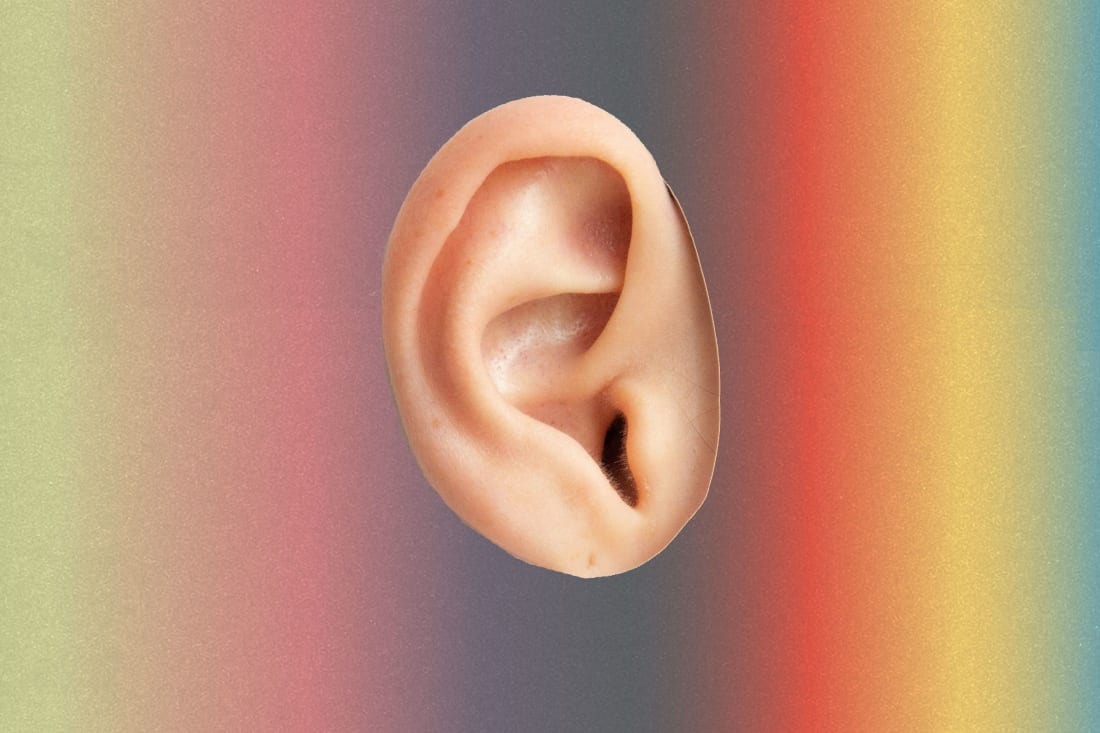Why Vitamin D is *so* essential
Turns out, the sunshine vitamin is in scarce supply in the UK
Turns out, the sunshine vitamin is in scarce supply in the UK
Ah vitamin D – the sunshine vitamin, though technically it isn’t even a vitamin, it’s a hormone. Its main role is to help the body absorb calcium, magnesium, and phosphate. Without it, we tend to feel low, sluggish and irritable. Most of us are able to naturally create vitamin D simply by being exposed to sunlight. In the winter, of course, there’s much less sunlight, which is why the dark seasons can be such a drag, FYI. Basking in the summer sun, wearing SPF 50 ofc, can do more than give us a healthy glow: those huge doses of vitamin D we get in summer support our bone health, immune systems and our happiness. But what to do when the sun is on hiatus?
Even though it would be wonderful to get radiant, clear, dewy skin, shiny hair and healthy, happy, productive, and never sleepy brains through a couple shakes and supplements, there is no special formulation we can take. Health is holistic, which is why a nutritious diet, exercise routine, mindfulness practice and a lil bit of fun (for balance, duh) are essential for a well-rounded, happy life.
That being said, it’s rarely easy to get all the vitamins we need from our diet alone, and as suggested, the sun not being out makes vitamin D, which isn’t often found in high quantities in the foods we eat, especially difficult to get throughout the year. That’s why supplements are all the rage, whether it's a chewable multivitamin or our powdered superfoods – people rely on these (around a healthy and balanced lifestyle) to top up the supplies in areas where it is most needed, and vitamin D is no different. Here’s everything you need to know…
Vitamin D
Vitamin D benefits
In short, vitamin D helps to regulate the amount of calcium and phosphorus in the blood which helps to keep our bones, teeth and muscles healthy, as well as supporting a healthy immune system, according to registered nutritionist and author of The Science of Nutrition, Rhiannon Lambert.
A lack of vitamin D is also often cited as contributing to low moods, which is why some of us are prone to Seasonal Affective Disorder (SAD) in winter. There have been some studies which have found that vitamin D supplementation can improve depression severity, including in people with Type 2 Diabetes. However, the research is still somewhat inconclusive, and other studies have found that vitamin D supplementation has no significant effect on depressive symptoms.
Vitamin D also helps if your brain is feeling particularly smooth. One 2009 study found that higher levels of sunlight and vitamin D led to improved cognitive function in depressed patients.
How much vitamin D should you take per day?
The amount of vitamin D we need to consume per day varies by age: for example, the NHS recommends that UK adults and children aged 1 and above should consume 10 ug of vitamin D per day. Babies below the age of 1 need 8.5 to 10 ug of vitamin D per day.
“From April to September, most people should be able to make sufficient amounts of vitamin D from the sun,” says Rhianon. “However, during the winter months (October to March) it is advised that everyone should take a daily 10 ug vitamin D supplement.” Alongside this, she adds that people should aim for a balanced diet with foods rich in vitamin D, as the sun’s rays are not always strong enough for us to get the amount we need.”
continue watching...
Vitamin D deficiency
If you don’t consume enough vitamin D through your diet, or if you don’t get enough sun exposure, you’re at risk of vitamin D deficiency. Who would have thought, eh?
“Some of the signs of vitamin D deficiency include tiredness, weakness, getting frequent infections, poor wound healing, muscle and joint pain, hair loss, bone deformities and rickets in children, osteomalacia in adults,” says Lambert. Rickets and osteomalacia are bone conditions that cause bone pain, poor growth and soft, weak bones.
Again, a lack of vitamin D and sunlight are thought to play a part in low moods and depressive symptoms. But, while some studies have noted a correlation between low levels of vitamin D and depression – with a particularly correlation observed between postpartum depression and low vitamin D levels in pregnancy – others haven’t, so more research needs to be done on the link between vitamin D and mental health.
A 2012 study suggested that some 50 percent of the global population had insufficient vitamin D levels, while around 1 billion were genuinely deficient. There doesn’t appear to be any more recent statistics, but back then, researchers estimated that it was likely to get worse.
If you’re showing symptoms and think you have a vitamin D deficiency, Lambert stresses that you should speak to a healthcare professional such as your GP, who can do a blood test, or a registered nutritionist or dietitian. People who are critically ill, live in partial confinement (like a prison or care home), don’t get enough sunlight or cover up their skin when outside and people with darker skin are more at risk of vitamin D deficiency.
How long does it take to recover from vitamin D deficiency?
A vitamin D deficiency simply means we don’t get enough vitamin D from the sunlight or our diets, so recovering just means making sure you get more of it, whether through diet, supplementation or sun exposure. It really is that simple.
Again, this is all very individual. Once a GP has established a deficiency, says Lambert, they’ll be able to prescribe the correct amounts based on individual needs. She adds that the recovery period will also vary depending on how deficient you are, “but is likely to take at minimum a couple of weeks.”
What are the best sources of vitamin D?
If the sun ain’t shining, we’re rarely thriving. This is because we get the majority of our vitamin D intake from sunlight. But, while getting out in the natural sunlight is vital for sufficient vitamin D levels, we can also find it in some foods, albeit in fairly low amounts.
That being said, Lambert says we can incorporate vitamin D rich foods into our diet, such as oily fish, like mackerel and salmon, red meat, eggs, mushrooms that have been grown in natural sunlight and fortified food such as breakfast cereals, fat spreads and infant formulas.
Are vitamin D supplements necessary?
If you get out in the sun as often as you can and eat a balanced diet, you might wonder whether you should take vitamin D supplements. The answer is usually yes.
“In the UK, we all need to be taking vitamin D throughout the autumn and winter months,” Lambert tells us.
“However, some people may have a higher risk of deficiency in vitamin D as a result of reduced sunlight exposure from wearing clothing that covers their skin and elderly people who don’t go outside often.” She adds that people with darker skin, such as those of African, African-Caribbean or south Asian origin, may also not produce enough vitamin D during summer months in the UK or in other northern climates.
“In cases like this, people should consider supplementing with a high quality vitamin D supplement all year round, to ensure they get the required amounts to help support healthy teeth, bones, and muscles,” she says.
How to choose the right vitamin D supplement
Supplements are all the rage right now, and rightly so. But it’s important to make sure you’re getting what you pay for. Importantly, Lambert says you want to choose a supplement that is made from more vitamin D3 than vitamin D2.
“Both forms can be absorbed into the bloodstream but they are metabolised by the liver differently,” she explains. “The liver converts both D2 and D3 into calcifediol, which is the main form of circulating vitamin D found in the blood, but most research, including a systematic review and meta-analysis, shows that vitamin D3 yields more calcidiol compared to the same quantity of D2.”
Still following? Essentially this means that vitamin D3 is more effective at raising vitamin D levels within the blood. “Both forms may be used in dietary supplements,” says Lambert, “but based on these findings, those that contain vitamin D3 are arguably superior.”





















